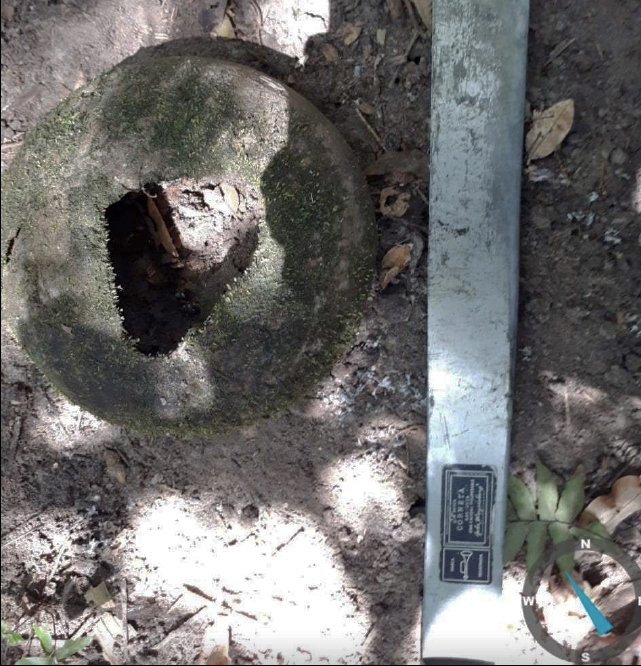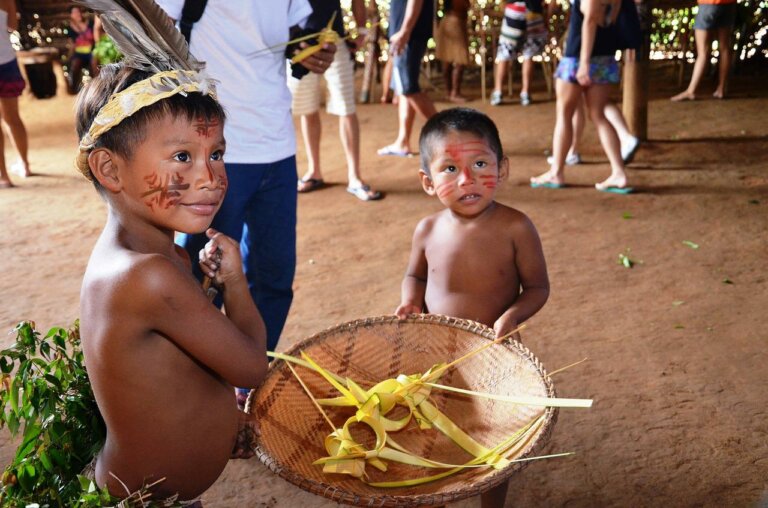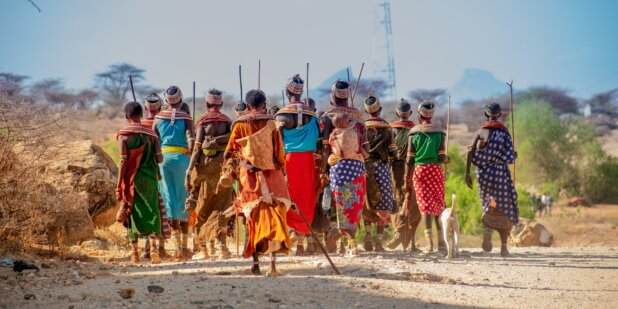- About
- Topics
- Picks
- Audio
- Story
- In-Depth
- Opinion
- News
- Donate
- Signup for our newsletterOur Editors' Best Picks.Send
Read, Debate: Engage.
In Brazil, government agencies tasked with protecting isolated indigenous communities are now collaborating with Jair Bolsonaro's administration to open up restricted areas to mining and logging enterprises and promote what some experts regard as genocidal incursions into indigenous territories.
In 2011, when the Brazilian government started to build the massive and controversial Belo Monte hydroelectric power plant in the Amazonian state of Pará, a territory known as Ituna Itatá was preventively protected by a Land Protection Order due to the reported possibility of isolated and uncontacted idigenous peoples living in the region. Such orders, which prohibit the entrance of any non-authorized persons into the demarcated area, are usually valid for a period of two to three years.
On 25 January, 2022, the order protecting Ituna Itatá expired and had to be renewed. The Brazilian government, supported by politicians aligned with land grabbers, miners and loggers, did not want to issue the renewal and acted to remove the protection from the area. The move was denounced by Survival International - an NGO working to protect the lives and lands of indigenous populations across the world.
The information later released came anonymously to Survival International and other NGOs working in this field: the OPI (Observatory for the Human Rights of Isolated and Recently Contacted Peoples) and Coiab (Coordination of the Indigenous Organizations of the Brazilian Amazon). It indicated that politicians aligned with Jair Bolsonaro - the Brazilian president who declared a true war on indigenous peoples since the beginning of his term, in 2019 - together with Funai, the federal agency for indigenous affairs tasked with protecting these communities - were plotting to drop the protection of Ituna Itatá.
According Priscilla Schwarzenholz, an anthropologist and a researcher and activist at Survival International, it all began when Senator Zequinha Marinho - who, according to the NGO, has strong links to the mining and ranching lobby and is also a member of the Assembly of God Evangelical Church - alleged, in 2020, that there were no isolated indigenous populations in Ituna Itatá. The attempts to make this area in Pará open to exploitation has continued since. The conspiring group would have agreed, according to investigations, to send an expedition to the territory, but with the hopes that researchers would come back without any evidence of communities living there.
Nonetheless, the expedition has actually found three pieces of evidence: a ceramic pan used for carrying water or to cook, a tortoise shell manipulated in a manner typical to isolated indigenous groups and a forest clearing, referred to as "capoeira," with regrowing vegetation, which also demonstrates that a nomadic people used to be there.
After the report was issued, Schwarzenholz said, there was a meeting between Zequinha Marinho and the president of Funai in which the senator had access to the report, despite the fact it should have been strictly confidential. "Only specific employees should be able to access it, because it contains information such as the possible location of isolated indigenous people, which puts them at risk, in addition to the risks to the employees who worked on the report," Schwarzenholz explained.

The expedition has found evidence of communities living there. One of the items was a ceramic pan used for carrying water or to cook. © Survival International.
Despite the evidence, Funai continued to deny the presence of isolated indigenous . The agency even went as far as harassing the employees to alter the report’s findings, a demand that the latter refused on ethical principles, and illegally removing them from their posts. "We are talking about people who may be at risk at this exact moment, intimidated in the forest, people who are not taking part in any of these talkings out here, just trying to survive in the forest," said Leonardo Lenin Santos, an indigenist at OPI. "These indigenists who carry out the research have a commitment to those people in the forest, not to political plots being made by a genocidal government."
What happened next was an all-out attack on the entire internationally recognised methodology around isolated peoples' location established by Brazil over the past 40 years, said Lenin. "This is done with the collaboration of the coordinators of the general coordination of isolated indigenous peoples. This is very serious. Usually these coordinators are technical people from Funai in Brasília who oppose any attack on these isolated indigenous people. They are now on the side of the ruralists," he denounced.
In addition, Schwarzenholz further mentioned that the government used the nonsensical argument that it should "respect private properties.” "It is totally absurd. First, because they deny the evidence found, and second, because they defend properties that should not be there, since it was a protected area," added the anthropologist.
After facing mounting pressure from civil society, NGOs and the Public Prosecutor's Office, the Land Protection Order of Ituna Itatá was finally renewed on 1 February, but only for six months (the ideal period would be three years, according to the specialists interviewed by by FairPlanet). "Six months is not enough time to do the demarcation process, to expel the invaders who are currently in the area, to actually protect the territory. Our concern is that they are just trying to buy some time to drop the protection later," assessed Schwarzenholz. Meanwhile, deforestation is already scaling up in the area, as shown by Survival International in a video.
“Indigenists who carry out the research have a commitment to those people in the forest, not to political plots being made by a genocidal government.”
This situation is not unique to Ituna Itaná. There are currently seven territories under restriction orders in Brazil; four of them raise concerns at the moment due to imminent threats: like Ituna Itaná, Piripkura and Pirititi have also had their Land Protection Orders renewed for additional six months, which are about to expire again. The case of Jacareúba/Katawix is even worse, as the Survival International specialist affirms that the area’s protection order expired and Funai has taken no steps to renew it.
The argument used by the government to justify the six-month renewal of the Land Protection Orders is that there is the willingness to definitely demarcate the territories, but Lenin does not believe it. "A government that has not carried out any land regularisation process will do so with the isolated peoples, just the ones with most political and economic pressure?"
Brazilian territory is huge and hosts one the biggest number of uncontacted indigenous peoples nowadays. Despite centuries of violent exploitation of the country with disregard to the presence of indigenous peoples, which led to the genocide of original population, it is estimated that 114 regions can possibly be home for uncontacted indigenous peoples (almost all of them in the Amazon Forest, except for one in Cerrado, another Brazilian biome). In 29 of them, their presence was confirmed by evidence collected by research expeditions, even though they remain isolated.
According to Lenin, the policy of protecting these peoples from unwanted contacts is a new development. From the republic’s establishment in 1889 until the re-democratisation of the country and the new Constitution in 1988, the state policy was integrationist, that is, aimed to add indigenous peoples to work forces, specially during the military dictatorship between 1964 and 1985. It was a genocide, and many communities collapsed.
That policy changed and, nowadays, Funai is the body designated to protect the autonomy and ways of living of these peoples. Whenever an expedition finds evidence or confirms the presence of uncontacted peoples in an area, the Brazilian government must decree a Land Protection Order, which gives a certain territory protection against invasions and only allows Funai employees to enter the area.

Brazil hosts one of the highest concentrations of uncontacted indigenous peoples worldwide. © Katiabraga.
An important aspect of the fight against the threats faced by indigenous peoples - which has not begun during Bolsonaro's administration, but were exacerbated during his term - are public campaigns.
There are currently two major campaings carried out by Survival International, in partnership with Coiab and OPI: Stop the Genocide and, the most recent one, "Uncontacted or destroyed," which launched in August 2021 with an open petition to be signed. "We believe that we must change public opinion to support indigenous peoples, not only in Brazil but in the entire world."
The job is done in various ways: by talking to journalists, using social media, gathering signatures in petitions and carrying out advocacy efforts with politicians and companies throughout the world. In addition, anyone can directly contact the president of Funai, the Minister of Justice and the leaders of deputies and senators by sending an email available on Survival International’s website and asking them to commit to renewing Land Protection Orders, evicting all illegal invaders from the territories and fully demarcating the lands, as required by the Brazilian constitution and international law.
The support of every sector of society, of any country in the world, is urgent and vital. "While we talk, there are invaders in those lands," reminds Lenin. "The Brazilian government is giving a certificate of legitimacy to a criminal process of destruction of the Amazon and, above all, of threat and genocide to isolated indigenous peoples."
Image by Julio Pantoja / World Bank
